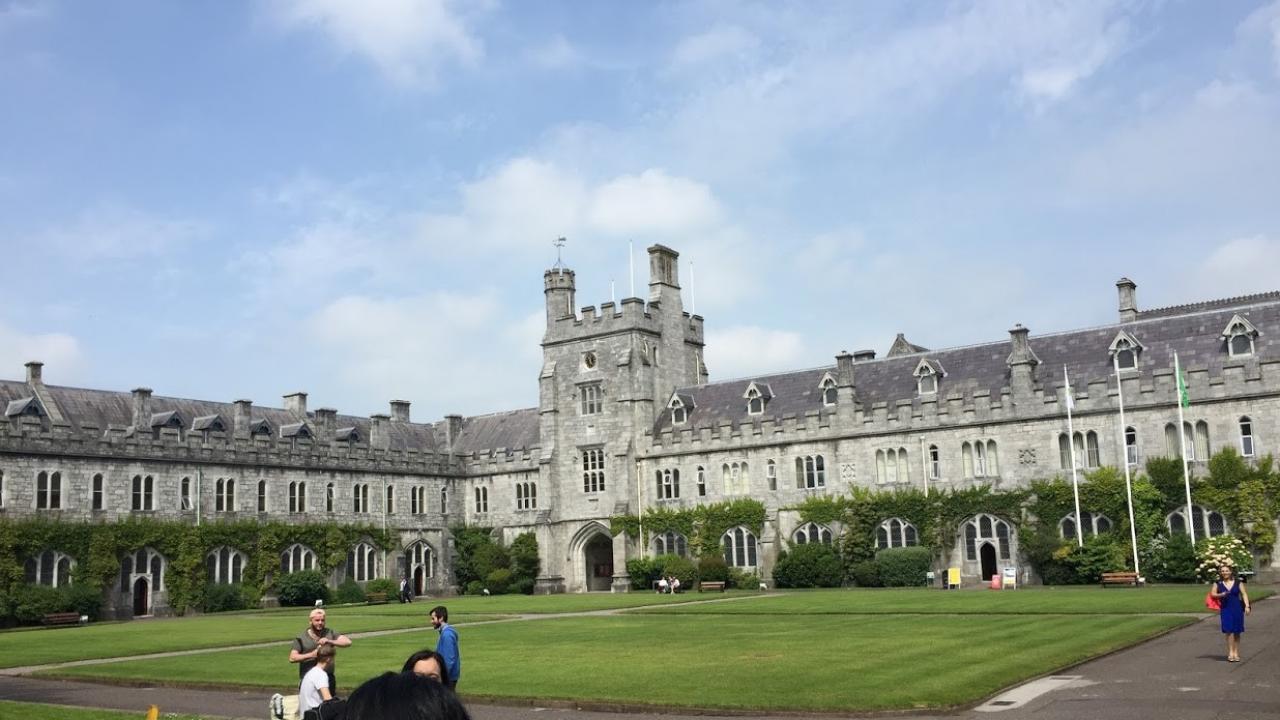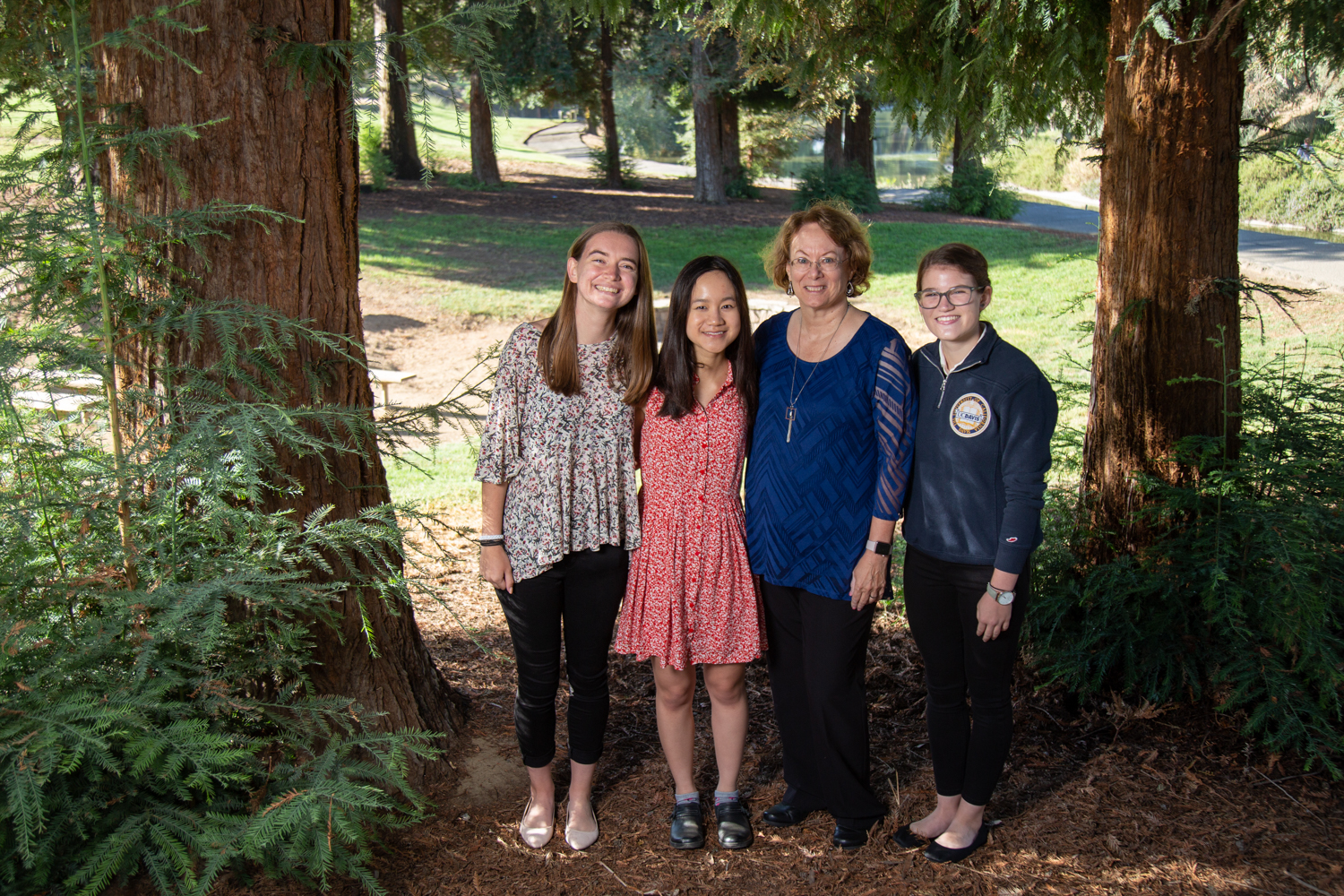
Biology on the Emerald Isle: Study Abroad Program Provides Transformative Experiences
Quick Summary
- "Bio Sci 2A on the Emerald Isle" is designed with College of Biological Sciences' students in mind
- The 5-week program is hosted at the University College Cork, one of Ireland's top schools
- In addition to biology, students learn about Irish culture through field trips, including visits to the Cliffs of Moher and Dublin
Joanne Newens entered UC Davis as a nutrition major on the pre-med track. At first, courses in the biological sciences were steppingstones on the path to medical school. She enrolled in prerequisites, spent time studying in the library and attended lectures. But something was missing from her life in academia.
Searching, Newens decided to spend the summer following her freshman year abroad in Cork, Ireland, traveling with the “Bio Sci 2A on the Emerald Isle” study abroad program. Over roughly five weeks, she and other UC Davis students took classes at the University College Cork (UCC) and immersed themselves in Irish culture.
“I didn’t want to take classes just to fill prerequisites. I wanted to take classes because I was interested in them,” said Newens, now a junior neurobiology, physiology and behavior major. “Being in a classroom filled with less people than a normal lecture and having a personal relationship with a professor really laid the groundwork of my love for science, and that’s why I switched majors.”
Newens’ journey through Ireland in 2017 was led by UCC instructor Kellie Dean. Newens remembered the contagious excitement Dean exuded while discussing biological concepts, like the structure and function of ribonucleic acid (RNA).
“You could see the passion in her eyes when she talked about RNA,” recalled Newens. “And I thought, ‘It’s so cool that you’re passionate about something so small, something that I’d never even thought of.’”
Inspired by Dean, Newens returned to the UC Davis campus invigorated. “I tried to find passion in science and it worked," she said.
Travel is transformative, but often, undergraduates—especially those in the life sciences—think they don’t have the time to study abroad due to rigorous academic demands. Missing a prerequisite course one quarter can have a ripple effect that disrupts an academic track. However, the Ireland program is designed with College of Biological Sciences’ students in mind.
“Personally, I think all students should go abroad; it enhances any liberal arts education,” said Professor Mitchell Singer, Department of Microbiology and Molecular Genetics. Singer traveled with the Ireland program in summer 2017. “It's important to not only see but participate in other cultures. As for biologists, learning to interact and discuss science to others is important.”
"Science is so transferable among different countries and cultures," said Dean of the benefits of life sciences students studying abroad. "It makes you realize that science is a great degree that can take you anywhere."
Broadening horizons, expanding networks
The alignment of the Ireland program’s courses with the College of Biological Sciences’ curriculum requirements convinced Elizabeth Moore to study abroad in summer 2017. And the setting seemed strangely familiar.
“I feel like Cork is the Irish equivalent of Davis,” said Moore, a junior microbiology major, who recalled the plethora of people biking and walking around and the noticeable influence of the university on the city.
While in Ireland, Moore and students in her program traveled and took excursions, including a weekend trip to Dublin, complete with visits to the National Botanic Gardens and the Jameson Distillery.
“Ireland is amazing and the class is amazing, but I feel like it wouldn’t have been the same without the people we went on the trip with,” said Miranda Burgett, a junior biological sciences major who also studied abroad in 2017. “You do everything together. We’d walk to class together in the morning because we all lived in the same spot and we would all go on these trips together.”
On one blustery day, they took a day trip to the Cliffs of Moher, where the Atlantic Ocean meets steep crags topped with grass. The winds were fierce, and Burgett recalled that the students clasped onto one another to find stable footing while taking pictures.
“I think we have a bunch of photos of us all chasing Professor Dean’s hat because it blew off her head and we were all running up the stairs to try and get it,” said Moore with a laugh.
While students spend time seeing sites in a new country, they're also learning the basics of biology. BIS2A is a touchstone of the College of Biological Sciences’ curriculum. The course introduces students to biochemical and molecular processes essential to life. Usually, enrollment for the class numbers in the hundreds, but the Ireland program is capped at 30 students.
"I hope students walk away with a greater appreciation of the complexity and beauty of biology, cells and molecules that make everything happen," said Dean. "I really keep up to the UC Davis syllabus but add my own material throughout, drawing from diferent classes I have taught over the past 14 years."
Singer gave guest lectures during the summer 2017 program. Moore recalled she was intrigued by the topics Singer covered, like mitosis and the electron transport chain. She wanted to learn more about his research.
“I talked to him after class and since there was only like 17 of us, it was really easy to talk to faculty one-on-one,” she said. “He basically just stood there and explained everything that he was doing.”
“I was honestly really intimidated by professors in general going into the trip,” added Moore, “but you get to know them on a much more personal basis.”

A trip with lasting effects
Moore joined the Singer Lab as an undergraduate researcher the fall quarter following her study abroad experience. The lab focuses on myxobacteria, a group of bacteria that live in the soil. Moore explained that when the bacterium can’t find enough nutrients in the soil, the cells will swarm together and form a biofilm—a mobile, multicellular conglomeration—that can glide to a new location and spore. Moore called the process “mesmerizing.”
“We’re doing a bunch of genetics work to try and understand exactly how that process works,” said Moore. “We’re still trying to figure it all out. There’s a couple of other interns who are working on the projects too. It’s a great way to get hands-on experience in a field you’re really passionate about.”
For Newens, the best part of the study abroad experience was the connections she formed with her fellow students and the faculty. As with Moore, the experience encouraged Newens to be more confident when approaching faculty.
“Office hours can be intimidating but in Ireland, I was surrounded by 17 people who were also serious about academics and we got really close,” said Newens, noting that the small lecture environments added to the comfortability of the experience. “I think the people really pull everything together and that’s why study abroad is great.”
“The trip just opened my eyes to how big the world actually is,” added Burgett. “There are so many places to go and see.”
